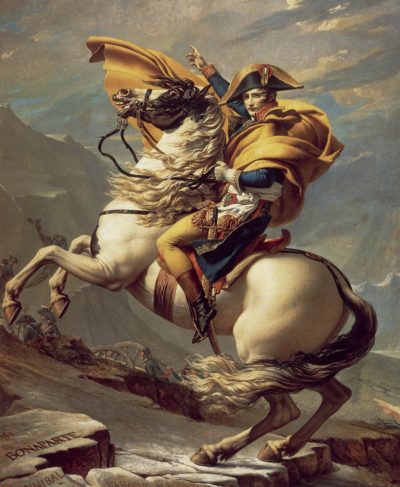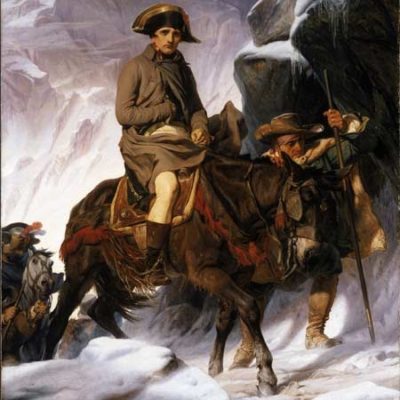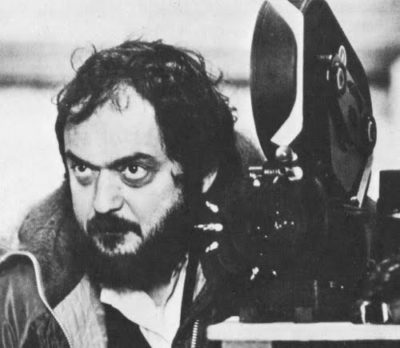EDITOR’S NOTE | By Bret Bradigan
Napoleon’s Curse
And the Lessons for Ojai
By Bret Bradigan
Stanley Kubrick, arguably the best and inarguably among the best filmmakers of all time, spent 20 years trying to make a historical epic about Napoleon Bonaparte, who he called “the most interesting man who ever lived,” and whose life was “a poetry of action.”
He wrote the script immediately after “2001: Space Odyssey” proved to be a smash hit, and his cultural capital had never been higher. Kubrick, famous for his obsessive nature and technological wizardry, was convinced that a true war epic had never been properly made. Toward that end he planned to shoot the film on the same fields — Marengo, Austerlitz, Jena, even Waterloo — where Napoleon had his greatest victories, and his one crushing defeat.
The film never got made, but you can read the script. Just google “greatest movie never made,” and you’ll find it. At 150 pages, it would clock in likely north of 3 hours, so that was another obstacle to it getting made.
It’s since passed through a few hands since Kubrick’s death in 1999. Steven Spielberg was signed on to make the film, this time as a 10-hour limited series for HBO, basically a ten-hour movie. Then it went to Cari Jo Fukunaga, director of “Beasts of No Nation” and the first season of “True Detective,” where the project is still in production limbo.
Why so much fuss over a project on someone who has been dead nearly 200 years? And why has it been so difficult to bring it to life?
Kubrick wouldn’t have devoted 20 years to his life if he didn’t believe that making such a film wouldn’t be his greatest work. But it would also pay homage to a man whose influence is still being felt all around the world. Not only did Napoleon make the brand-new United States of America among the key players on the world stage with a flourish of his pen on the Louisiana Purchase, his campaigns kept the British very occupied for 20 years, and so provided our infant country with the breathing space necessary to get our feet underneath us. When the British did invade in 1812 (not coincidentally after Napoleon’s tragic retreat from Moscow), we were better prepared, and at least we were able to fight them to a standstill.
It’s fun to imagine what that film might have looked like, especially in an age of computer-generated images. Kubrick was set to film some of the big set-piece battles in Romania, where he could afford to outfit and maneuver more than 40,000 extras, adding a vivid and sweeping authenticity that any Avengers film would be hard pressed to match.
It’s been 40 years since Kubrick first made plans, and in his meticulous obsession he gathered up what may be the world’s largest private collection of items and artifacts from the Napoleonic era, including many personal effects of the “little corporal” himself.
Kubrick recognized that the story of Napoleon is the story of the inevitable conflict in humanity, between the Divine Rule of Kings, and the Rights of Man. And despite his failings, which were magnified by his greatness, Napoleon was clearly on the side of Man. There is a bright line to be drawn from the American Revolution (“The shot heard ‘round the world”) to the French Revolution.
There’s a few lessons in Kubrick’s obsession, including some for us in Ojai. It’s good to dream big, because it gives shape to our days, and to our future. As Browning put it, “A man’s reach should exceed his grasp, or what’s a heaven for?”

Napoleon crossing the Alps in a highly stylized painting that he asked to be redone to more accurately reflect the campaign.

Napoleon commissioned this painting of his famous Alps crossing, much less glamorous and more accurate.
Ojai is a little town with a big reach — we are known around the world as a place where artistry and creativity flourishes. And to a degree that’s hard to quantify but impossible to ignore, we are living through the Enlightenment legacy of Bonaparte and our founders. In many ways, this struggle mirrors Ojai’s … a place where developers and gurus and quick-buck artists and others who depend on blind faith in authority to succeed fear to tread. Or at least, they should.



Leave A Comment